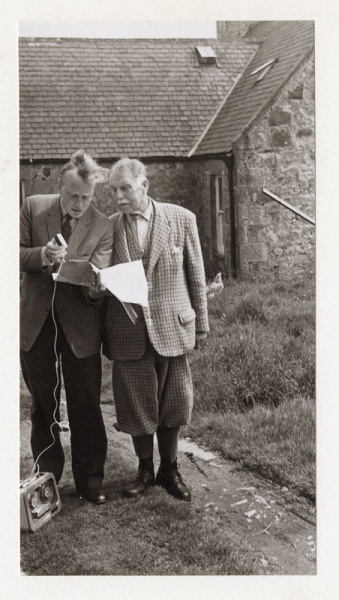‘A Fieldworker’s Vision: Researching the Present’
Folklore, Ethnology, and Ethnomusicology Conference Aberdeen
Elphinstone Institute, University of Aberdeen, Scotland
Co-sponsored by the Folklore Society
1–3 July 2016
FEECA 2016 Conference Programme
The FEECA 2016 Leaflet shows the schedule for the weekend.
FEECA aims to bring together graduate, postgraduate students, and early-career researchers in these fields to strengthen relations between relevant scholars and institutions in the UK and around the world.

The keynote lecture will be given by Dr Jonathan Roper, Senior Research Fellow in English and Comparative Folklore at the University of Tartu, Estonia, with other papers covering a wide-range of topics representing contemporary research from Australia, India, Russia, Croatia, the USA, Canada, Finland, Sri Lanka, and Italy, as well as the UK and Ireland.
Keynote Lecture
5:30PM, FRIDAY, 1 JULY, 2016
Sir Duncan Rice Library, 7th Floor, Conference Room 1
Addressivity and Folklore
Dr Jonathan Roper
University of Tartu, Estonia
'Do there exist genres without an addressee?’ Baxtin (Bakhtin) asked himself in his ’Notes of 1970/71'. Whatever the answer might be for literary texts, for folklore texts the answer is surely ‘no'. Tales, songs, charms, proverbs and riddles all have their own forms and norms of addressivity. This keynote aims at highlighting the addressivity of folklore texts, and how we might better imagine and understand folklore by bearing its addressees in mind.
Biography:
Dr Jonathan Roper is Senior Research Fellow in English and Comparative Folklore at the University of Tartu, Estonia. He earned his PhD in 2003 from the University of Sheffield with his thesis English Verbal Charms. He chairs the International Society for Folk Narrative Research committee on Charms, Charmers and Charming, serves on the Editorial Board of Commentationes Archivi Traditionum Popularium Estoniae, and is an associate member of the Folklore Fellows.
Dr Roper’s academic research to date has mainly focused on traditional linguistic genres such as verbal charms and riddles. His interest encompasses both texts and practice, i.e. charms and charming, riddles and riddling, as well as the people involved, the charmers and the charmed, the riddlers and the riddlees. Dr Roper also researches the historical and present-day dialects and folklore of southern England and eastern Canada (Newfoundland, Labrador, the lower North Shore of Quebec). He has produced three films: one on mumming, another on fortune-telling, with the most recent being a portrait of a traditional singer.
Download the CFP for FEECA 2016 here (submission deadline 31 January 2016).
